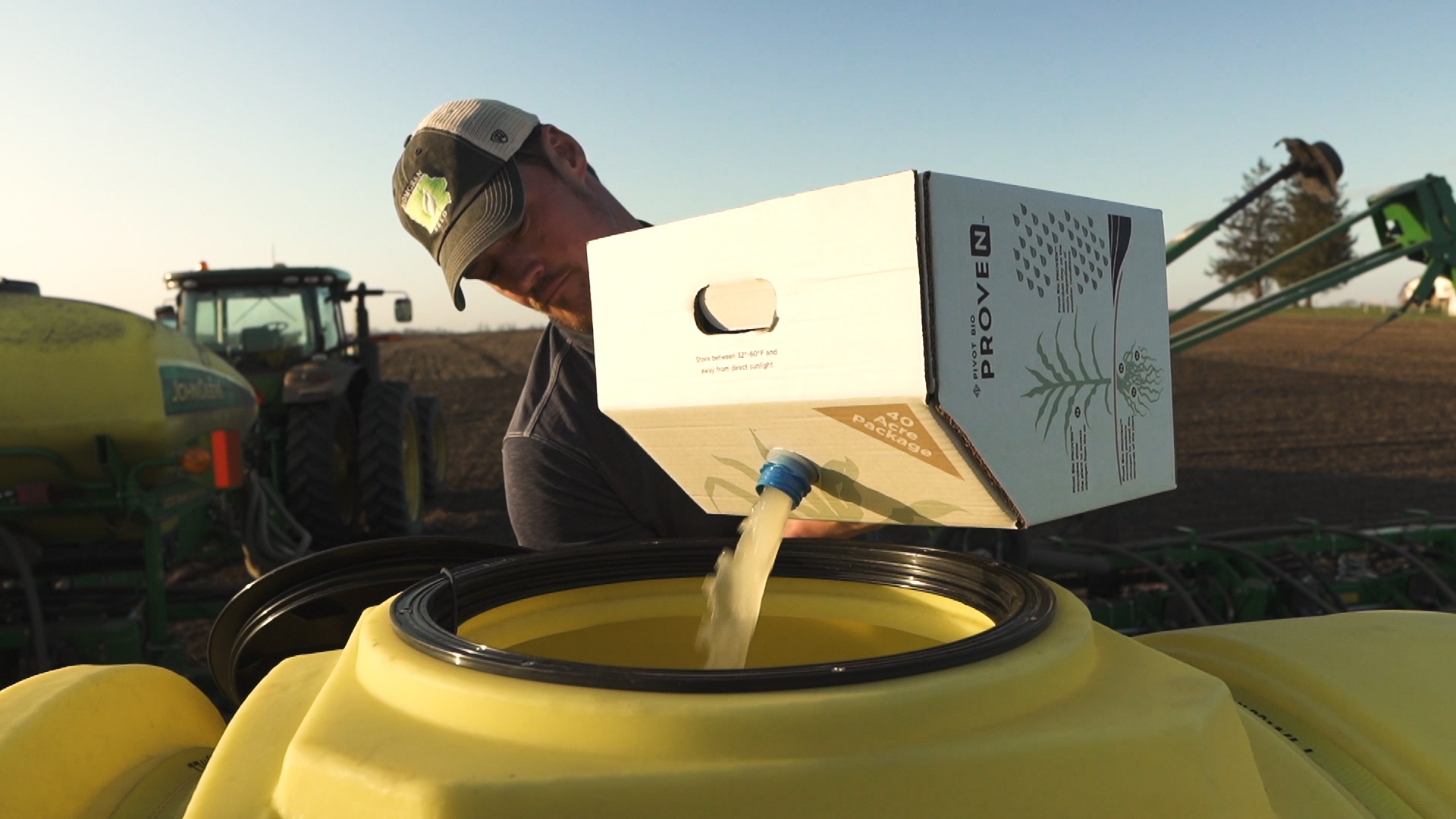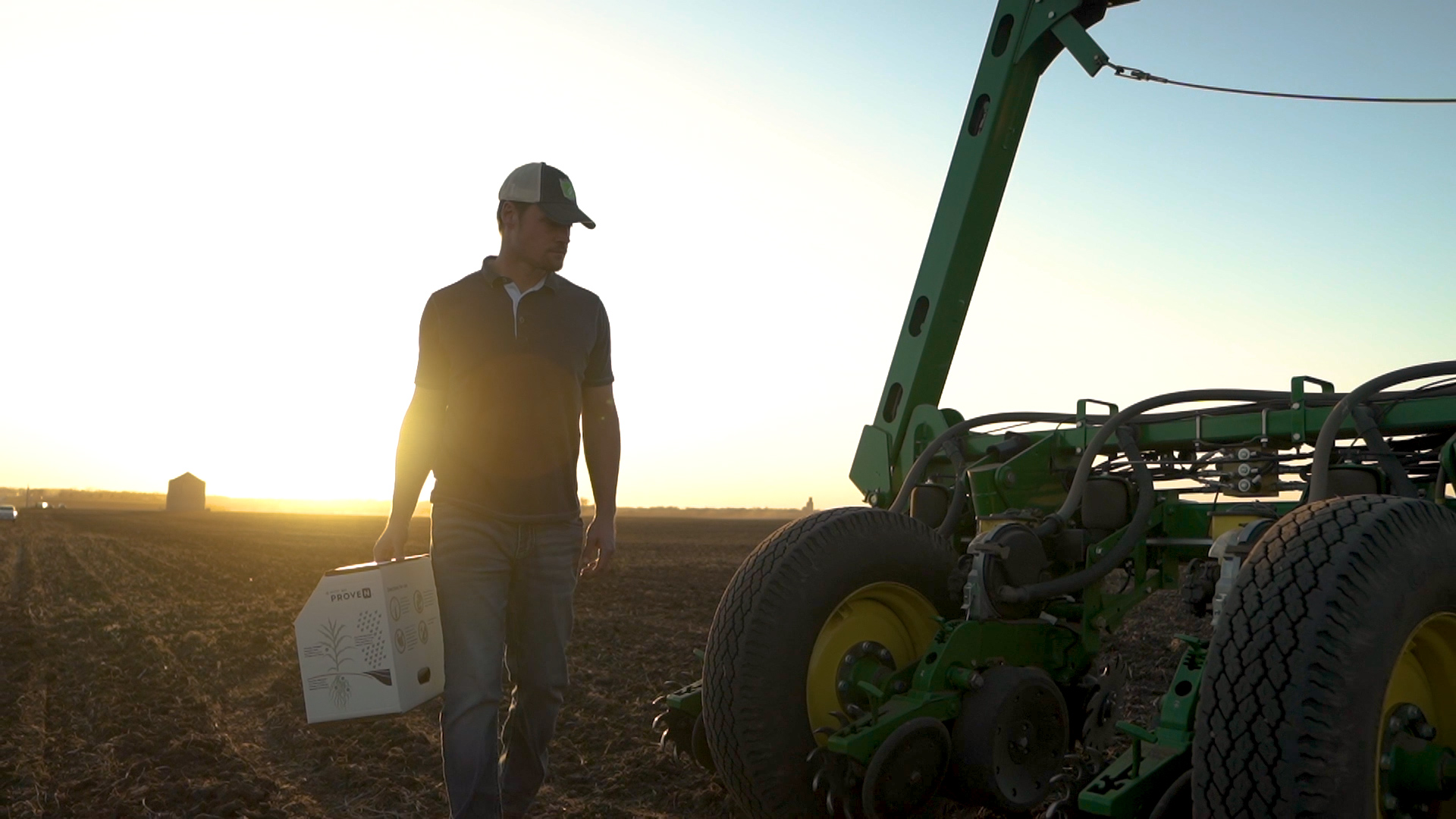In the first decade of the twentieth century two German chemists, Fritz Haber and Carl Bosch, invented fertilizer — the nitrogen compound which ushered in modern agriculture and saved the world from potential starvation.
Now, over a century later, a new group of scientists backed by government-owned international investment funds and some of the world’s wealthiest men and women is trying to save the world from their invention.
In the hundred years since companies began manufacturing fertilizer at an industrial scale, the chemical has become one of the main sources of the pollution that’s choking the planet and putting millions of the lives its use has helped to feed at risk from severe droughts, fires, floods, and storms caused by climate change.
That’s why investors including Breakthrough Energy Ventures (the investment fund backed by Mukesh Ambani, Jeff Bezos, Bill Gates and Masayoshi Son) and the Singapore-owned investment fund Temasek along with DCVC; Prelude Ventures; Spruce Capital Partners; Codon Capital; Bunge Ventures; Continental Grain Company; Tekfen Ventures; Pavilion Capital; and individual investors Alan Cohen and Roger Underwood have backed Pivot Bio with a new $100 million investment.
Pivot uses genetically edited microbes to replicate the work that naturally occurring bacteria had done for millions of years to fix nitrogen in the soil, where it could be absorbed through plants’ root structures.
Crops like peas, beans, and soybeans have developed a symbiotic relationship with bacteria in the soil that take nitrogen from the air and convert it into a form that the plants can use. But grains like corn and wheat don’t have a link with any nitrogen-fixing bacteria, so they’re not able to grow as robustly. Some farmers rotate crops between plants that have nitrogen fixing bacteria and those that don’t so the soil can remain nutrient rich.

Using the company’s products, Pivot Bio estimates that farmers can improve yields and remove one gigaton of carbon dioxide-equivalent emissions from the atmosphere. The company also said that it can reduce approximately $4.1. billion in spending on water purification across the U.S. Spending which can be traced back to the water pollution associated with industrial farming and its use of synthetic fertilizers.
Over time, the run off of excess fertilizer from farms can lead to environmental degradation and the poisoning of local and regional water supplies.
Farmers are already using Pivot Bio’s microbes to improve crop yields and reduce fertilizer use for corn crops — with typically gains of 5.8 bushels per acre on fields that used the company’s treatments compared to fields using only synthetic nitrogen, the company said.
“Growers and our planet deserve a better fertilizer – one that balances on-farm economics with the farmer’s commitment to leave the land better for the next generation, and Pivot Bio’s technology helps them do just that,” said Karsten Temme, CEO and co-founder of Pivot Bio.
Pivot will use the money from the new round to expand internationally into Latin America and Canada and begin marketing a new product that it’s introducing into the U.S. market for wheat crops, the company said.
“Pivot Bio’s microbial nitrogen fertilizers are revolutionizing how farmers apply nitrogen to their crops, and we’re excited to continue our investment to support this important mission,” said Carmichael Roberts of Breakthrough Energy Ventures, in a statement. “The company is leading the charge on truly sustainable farming techniques, and we’re confident that they’ll continue to innovate their product offerings to solve this critical climate and societal challenge.”
As Temme notes, the thesis around using microbes in agriculture dates back at least fifty years. However DNA sequencing, machine learning, and gene editing made possible by advances like CRISPR all equate to new abilities for researchers to develop products that can fulfill the promise that microbial soil enrichment promised.

For Pivot Bio, the proof is in the sales. Even as the economic downturn caused by the COVID-19 epidemic continues to wreak its havoc on a range of industries, Temme said that Pivot’s sales remain consistent.
Typically when farmers face tough times, they go back to basics and don’t experiment with new, relatively unproven products, Temme said. However, Pivot’s product is already sold out for the season.
“Pivot Bio is addressing one of the most difficult challenges facing agriculture in the 21st century – reducing dependence on damaging synthetic fertilizer while increasing crop yields and creating better outcomes for farmers,” said Matt Ocko, Managing Partner, DCVC, in a statement.
Pivot may be the company that’s managed to get to market first, but they’re far from the only company looking at replacing fertilizer with microbes. In Boston, a joint venture between Gingko Bioworks and Bayer, called Joyn Bio, is developing a microbial-based nitrogen fixing technology of its own.
However, its product has yet to come to market and the company’s planned trials have been delayed by the COVID-19 outbreak, the company said.
“We are following the strict guidelines of our facilities in Boston and Woodland that dramatically reduces the number of employees in our labs and greenhouses, while the remainder of our staff are continuing our efforts from home,” the company wrote in a statement on its website. “We are currently focused on preparing for our 2020 field and greenhouse trials as best we can under these new conditions.”
Meanwhile, Pivot Bio continues to sell.
“Farmer acceptance of our technology and support of our vision is far beyond our expectations,” said Temme, in a statement. “They understand the economics and efficiencies our product offers – more consistent yields, 100 percent nitrogen efficiency with the crop, and a lighter environmental footprint. It’s a triple bottom line for them and our planet.”
Comments
Post a Comment